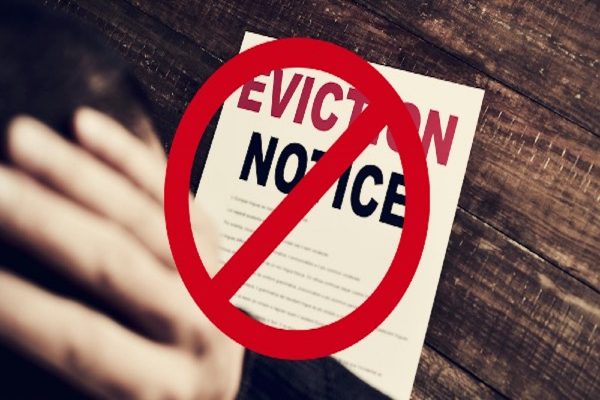
With a unanimous vote on Monday night, West Hollywood’s City Council extended the city’s eviction moratorium for both residential and commercial tenants by two months to September 30, 2020. The moratorium prevents evictions for tenants facing financial hardships due to the ongoing coronavirus pandemic only.
With this extension, residential and commercial tenants must now provide landlords with documentation proving a COVID-19-related financial hardship prevents them from paying their rent. They have 30 days to provide that documentation to the landlord. This change was made because some tenants had the money to pay rent but were opting not to pay due to the moratorium.
Also, the extension now allows residential and commercial tenants to draw from their security deposits to pay some of the back rent owed to landlords, but those tenants must eventually repay that security deposit.
Residential tenants still have one year from the time the eviction moratorium is lifted to pay the back rent owed in full.
However, in an effort to help smaller businesses, the Council changed the terms regarding repayment of back rent on commercial properties. Commercial tenants with 20 or fewer employees now have one year from the time the moratorium is lifted to repay the back rent owed. Commercial tenants with 21 or more employees still only have six months to repay the back rent.
The Council added another $250,000 to the city’s rental assistance fund for residential tenants and also agreed to let residential tenants apply a third time for a $1,000 grant to cover rent. Previously, a residential tenant could only apply for the $1,000 rental assistance grant twice.
That rental assistance program is administered by the National Council of Jewish Women (but open to all residents regardless of gender or religion) and by the Alliance for Housing & Healing (open to residents 55 years and older). If approved, the grant checks are paid directly to the landlord, not to the tenant. Tenants must provide supporting financial documentation to qualify for the rental assistance grants. More information about the rental assistance program is available online at: https://www.weho.org/services/social-services/financial-assistance
The Council discussed requiring residential tenants who cannot pay their rent to apply for the rental assistance grants, but ultimately did not include that in the moratorium.
The Council’s action also extends the freeze on any rent increases during the pandemic. Many residents were confused because last week the city announced an annual rent increase of .75% for rent stabilized units. City attorney Lauren Langer explained the increase was announced because it was required by law, but will not take effect until 60 days after the expiration of the local emergency, which currently does not have an end date.
The city took these measures to ensure commercial businesses that have been forced to close and/or operate at reduced capacity due to the pandemic have at least a chance of staying in business once the crisis ends.
For residential tenants, the Council’s goal is to help residents stay in their homes and avoid becoming homeless. Even before COVID-19, the Los Angeles region already had over 50,000 homeless people. That number could have increased exponentially with the coronavirus crisis if the various cities throughout Los Angeles County hadn’t issued eviction moratoriums.
The homeless population is at greater risk of contracting the coronavirus and of potentially spreading the virus since social distancing and proper hygiene is more difficult for homeless people. Thus, keeping people out of homelessness is a way to protect all residents from possible infection.
The Council first declared a local state of emergency on March 16 in response to the coronavirus threat. With that state of emergency, the city also issued the eviction moratorium which initially went until April 30, but was later extended to May 31, then to July 31 and now Sept. 30. The moratorium could be extended again depending upon conditions related to the pandemic.

The harsh reality is that people who live in units not built before 1979 or apartments built 40 years ago or less, will have no protections whatsoever after these pandemic causes not only an exacerbated housing crisis but an economic and survival crisis. The irony is that in the last two decades, West Hollywood has become the epicenter of Gentrification. Owners used tactics like losing rent checks, inspection failures or compliance issues or intimidated renters on not providing maintenance services on their part to get tenants to vacate only to sell of the property outright. The rents only grew more… Read more »
Wonder how many people have applied for the $1,000.00 grants? We should insure that all tenants get notification of their rights and the availability of programs to help keep people in their homes.
Tricky situation, but this seems silly and one one-sided to me.
Including a carve out for property owners that are also experiencing a COVID related financial difficulty might have helped, whereby qualifying landlords wouldn’t be subject to the same eviction moratorium. Can’t help some at the expense of others.
A friend of mine has a high end small WEHO apartment building with two units now vacant. He’s not putting them back on the market until there’s a vaccine!!!
Another moved into a high end apartment in West Hollywood. Before signing the lease, the manager wanted full financials, tax returns, proof of income, high credit score, including meeting the owner, etc.
I wonder if John Duran would qualify with a history of over $325,000 in tax liens?